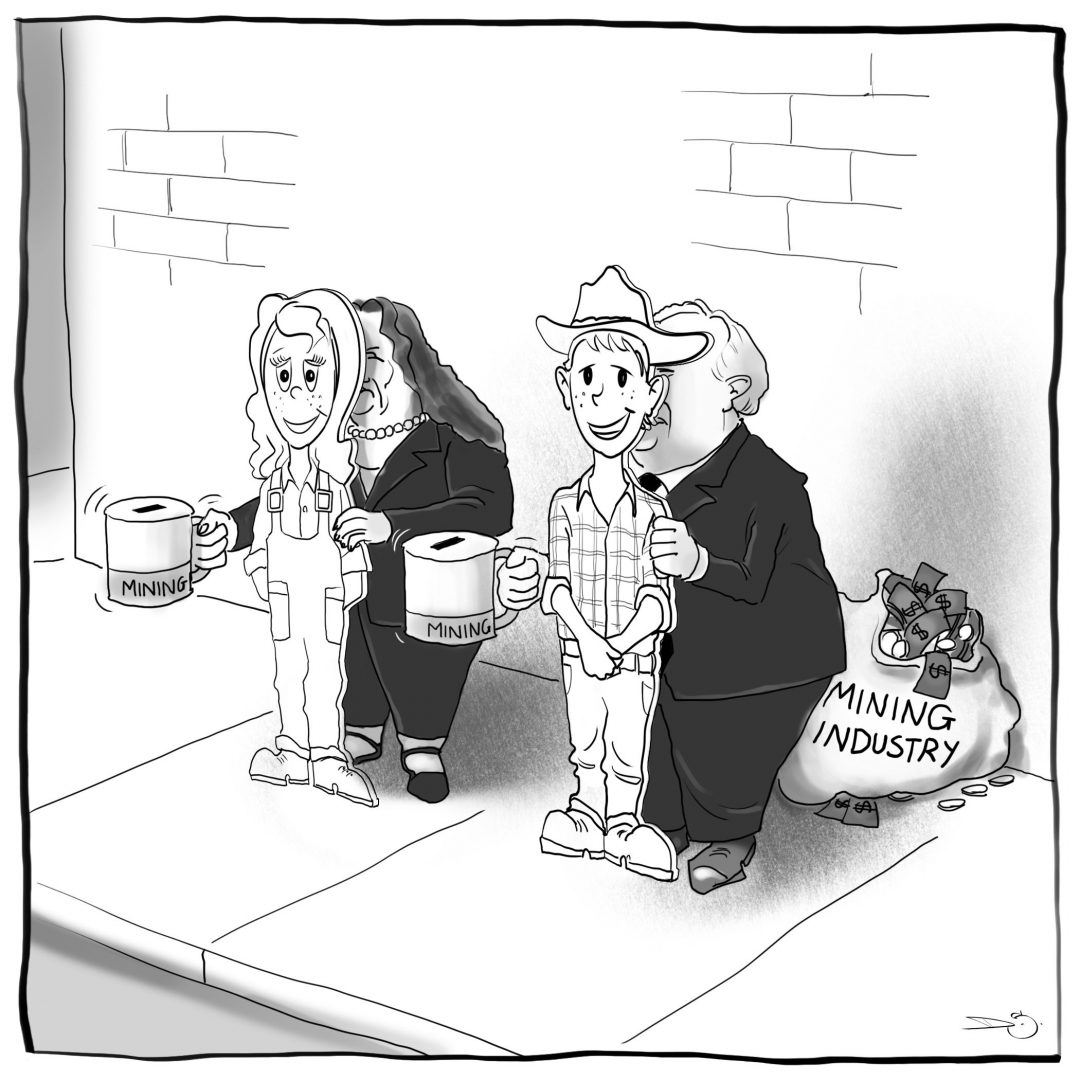It’s not only real-estate agents who get why position is so important, just ask those poor guys in the mining industry how important – and tricky – it is to get their position right, especially in these final days before the federal Budget.
Making the right call on how to position themselves could mean the difference between being able to hold on to the massive subsidies they get from tax-payers or losing big slabs of it like the $2 billion they currently get in the form of diesel fuel rebate.
They knew this was going to be a harder ask than usual – actually it isn’t usually a hard ask at all because neither of the major political parties have ever seriously considered taking it off them – but this year both Labor and the Coalition have made a song and dance about making major savings in the Budget.
That’s partly why the mining industry have been mewling and whining on every second page of the national media, complaining about how much tax they pay. That’s when they’re not on the telly telling us what great guys they are and what their real story is. The mining industry has always argued Australia’s economic health was dependent on them being able to make massive profits – with as few hindrances as possible – so it should come as no surprise that when the question of cuts and savings came up round the Budget they were going to come under pressure.
So what kind of positioning do they go for? Should it be the kind of tough-but-fair, Marlboro Man approach they’ve got going in their ads – you know the one’s where they say they’re not against paying their fair share but enough is enough and if the government tries to make them pay a cent more they will take their bat and ball and go to Mongolia – literally? Or the we’re-just-like-you position of their, ‘This is our story’ commercials, the ones where the nice doctor talks about looking after folks and the woman rides her horse and talks about being as tough as any bloke? Or do they just rely on their monster bucks and the head-kicking capacity of their lobbyists – the same ones that have made them appear an assailable political force for the first time in Australian history?
Judging by polling commissioned by ACF and conducted last week, they may have to use all of the above plus some because the numbers they need are starting to go south.
That polling shows 91% of Australians believe the $2 billion given to the mining industry every year in fuel tax credits would be better spent on health and education. The poll also found 86 % of Australians think mining companies should have to pay the same rate of tax for fuel as other Australian drivers. More than 77% say the fuel tax credits scheme should be scrapped for mining companies. As ACF CEO, Don Henry summarised it, “Every Australian taxpayer is contributing $174 a year so companies like BHP Billiton and Rio Tinto can pay little or no tax for their fuel.”
This is a problem that potentially goes beyond the mining industry’s capacity to hang on to the $2 billion in diesel rebates and could become the tipping point for the industry’s economic and moral credibility.
Last year The Australian Institute released a report that examined the rhetoric and reality of the mining boom, called Mining the Truth. The report found: while Australians believed the mining boom employed about 16% of the workforce, it actually only employed 2%. Most Australians believed mining accounted for about 35% of GDP when it only accounts for 9.2% of GDP—about the same contribution as manufacturing and slightly smaller than the finance industry. The public also substantially underestimate the degree of foreign ownership. While, on average, respondents said that 53 per cent of Australian mining activity is controlled by foreign companies, in reality the figure is actually 83 per cent.
So Australians have seen the mining industry as far more powerful , national and strategic to the economy that it actually is. But the really depressing numbers for the mining industry are ones generated by research conducted by Essential Media Communications last week.
EMC found that despite millions spent by the mining industry telling their story and advertising their complaints every second day in national print media, two-thirds see no personal benefit to the mining boom dominating Australia’s economy, while a tiny 2 per cent say they have benefited a lot. And the idea that the industry is over-taxed is rejected by a ratio of three to one.
The broader community is also now making the link between a mining boom that drives up the Australian dollar and the viability of other industries- like theirs.
None of this may worry the mining magnates that are now already richer than Croesus, but for the real players like Rio Tinto, BHP Billiton and Peabody, they should have sufficient corporate memory to know what happens when the public withdraw the license to operate. They should also remember just how quickly that can happen.
Macken Sense is a weekly metabolic breakdown of media and green events by our astute commentator, Julie Macken. Follow Julie Macken on Twitter @juliemacken.


